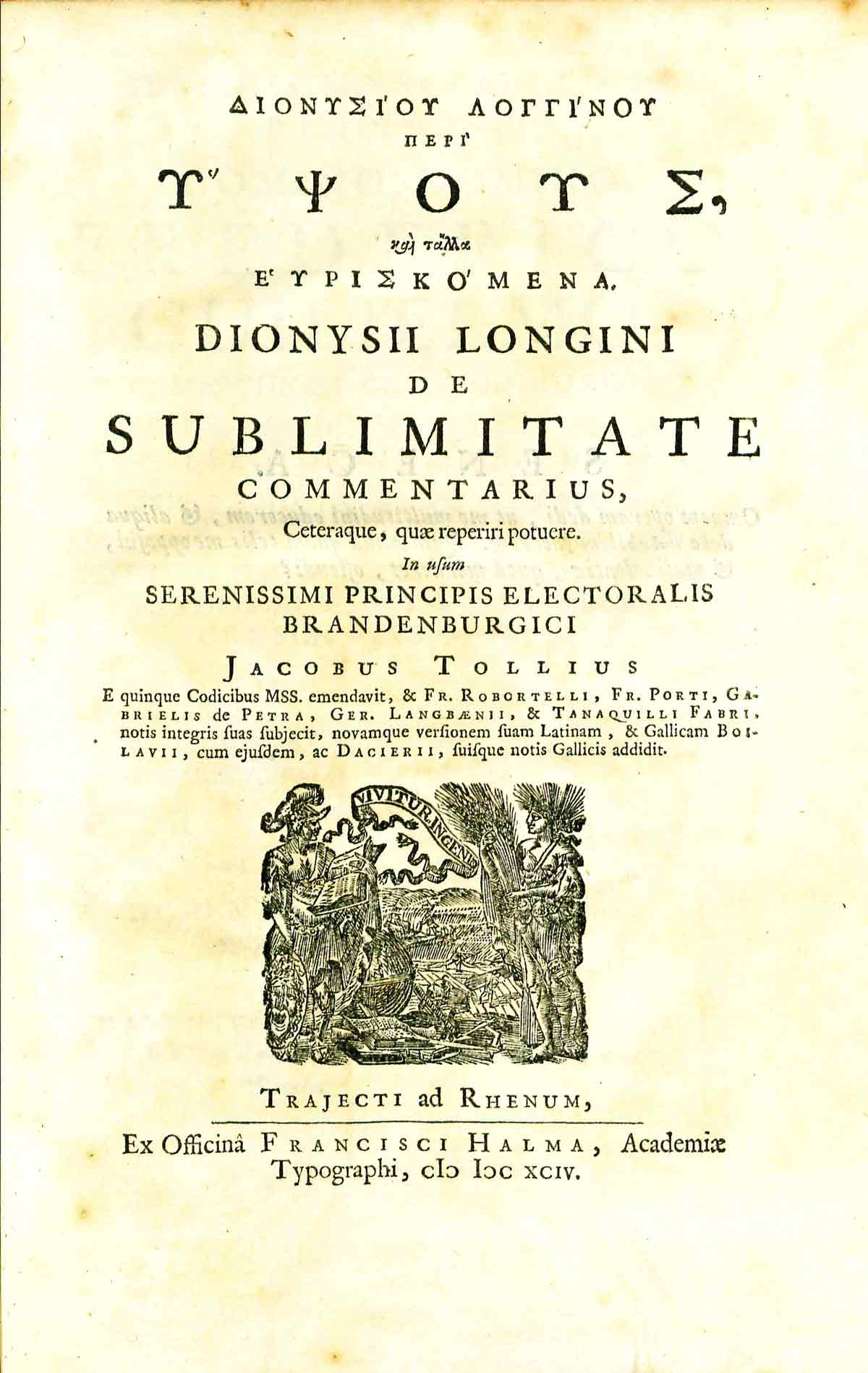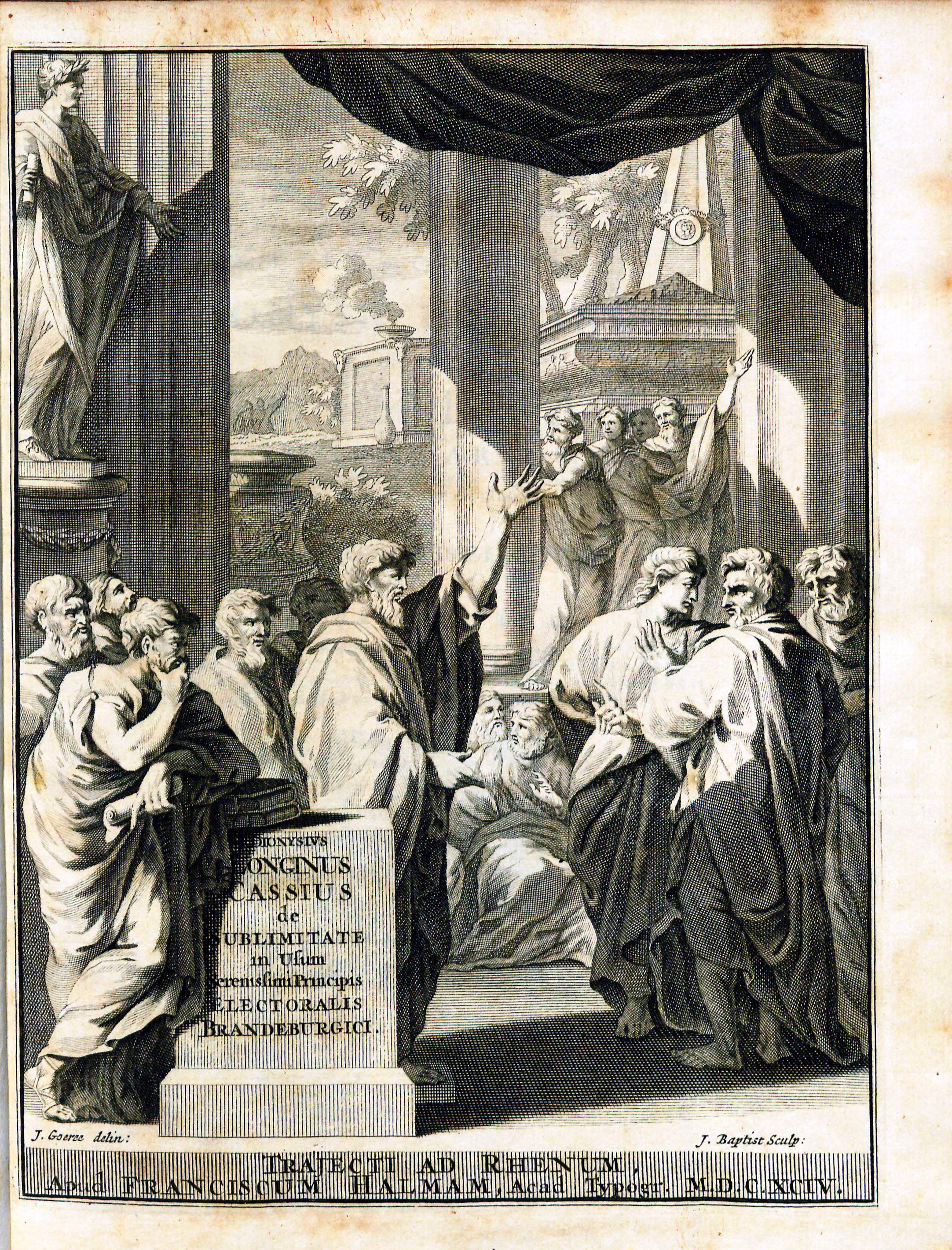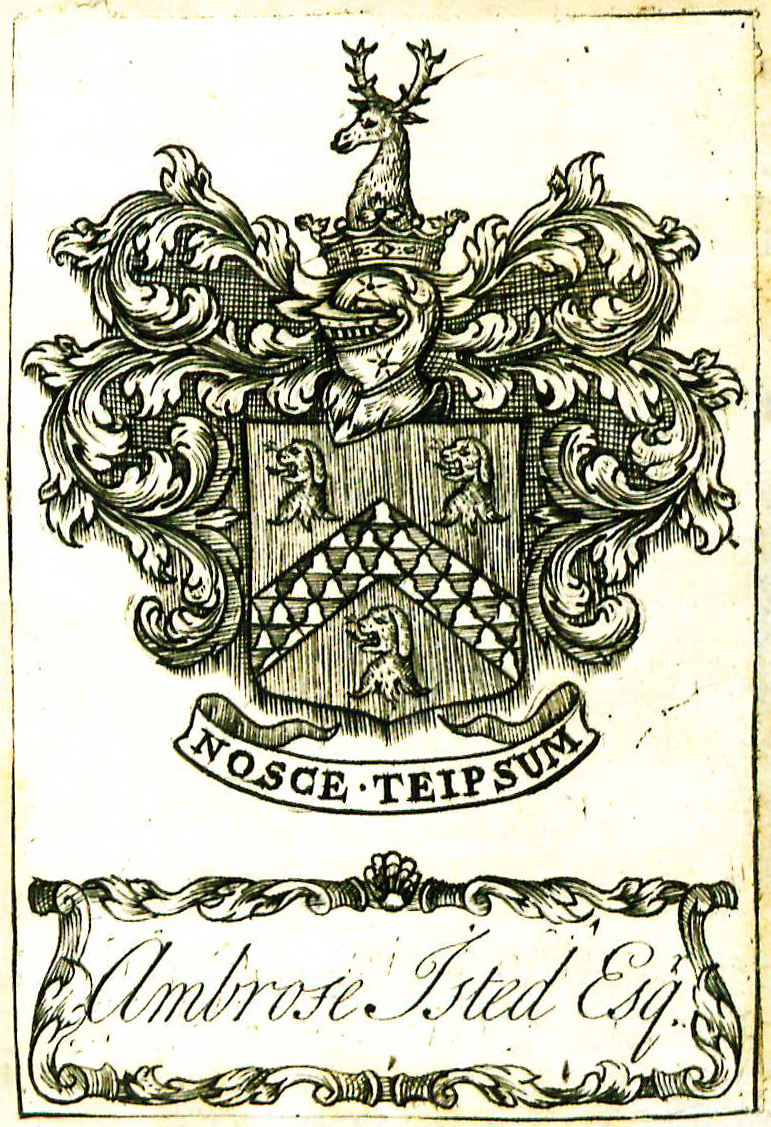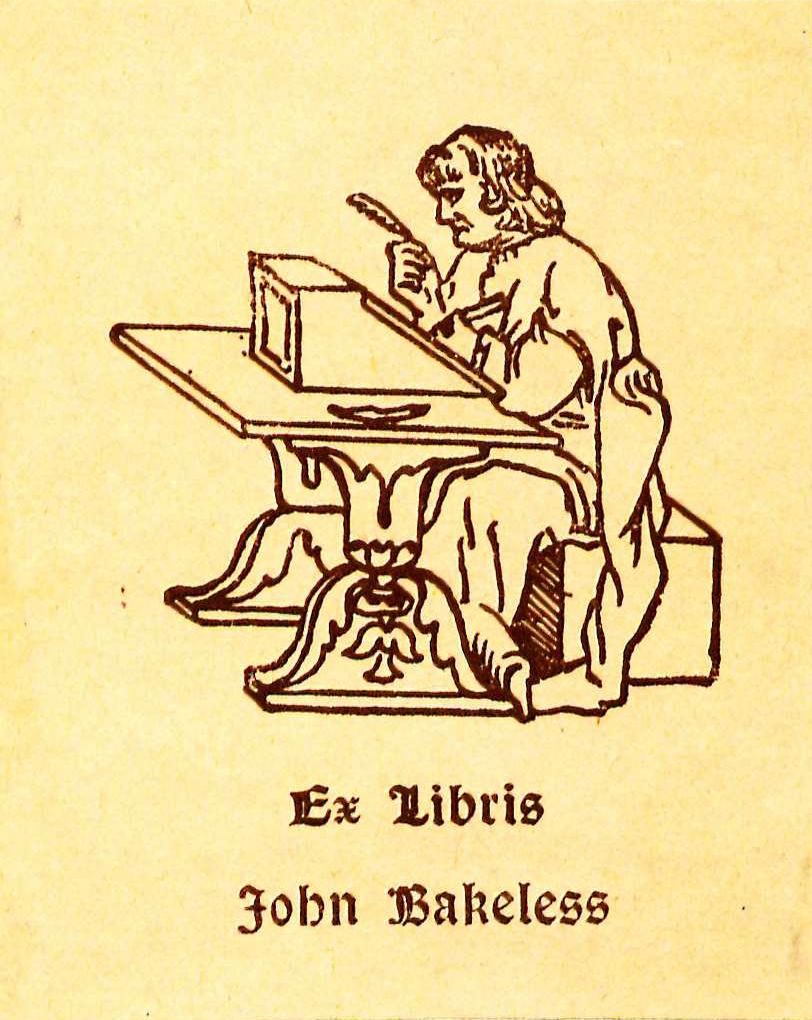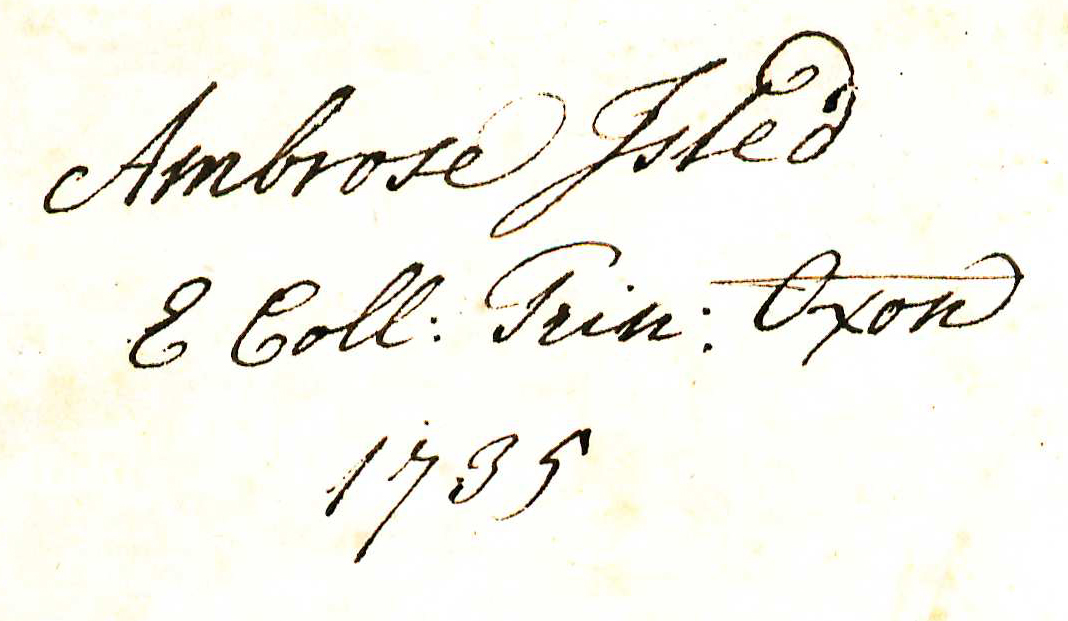Dionysiou Longinou Peri Hupsous, Kai Talla Heuriskomena
by Longinus
| Dionysiou Longinou Peri Hupsous, Kai Talla Heuriskomena | |
|
Title page from Dionysiou Longinou Peri Hupsous, Kai Talla Heuriskomena, George Wythe Collection, Wolf Law Library, College of William & Mary. | |
| Author | Longinus |
| Published | Trajecto ad Rhenum: Ex Officinâ Francisci Halma |
| Date | 1694 |
| Language | Text in Latin and Greek, followed by French translation from the Greek of De Sublimitate |
| Pages | [26], 408, [12] |
| Desc. | 4to (24 cm.) |
| Location | Shelf H-4 |
Sublime can be defined as “that quality of genius in great literary works which irresistibly delights, inspires, and overwhelms the reader."[5] It applies more to literature than natural phenomena, and to specific excerpts rather than entire works, resulting from “superhuman natural capacity…[to] lift us above our quotidian banalities and put us in touch with finer minds and, above all, with less obstructed emotions.”[6] On the Sublime is influential due to its analysis of poetry and prose and its reflections on writing and genius in general.[7] Longinus gives many examples and non-examples of sublimity in a wide variety of literary sources, from Homer to Demosthenes to Cicero, Sappho, and even the Book of Genesis.
Evidence for Inclusion in Wythe's Library
There is no doubt that George Wythe owned Dionysiou Longinou Peri Hupsous, Kai Talla Heuriskomena. A copy of the 1694 edition at the Library of Congress includes Wythe's bookplate and an inscription by Thomas Jefferson on the flyleaf "The gift of a friend a few days before he died" followed by four lines of Greek. Jefferson also listed "Longinus. Gr. Lat. Tollii 4to." in his inventory of Wythe's Library, noting that he kept the volume himself. He later sold it to the Library of Congress. Both the Brown Bibliography[8] and George Wythe's Library[9] on LibraryThing list the 1694 edition of Dionysiou Longinou Peri Hupsous, Kai Talla Heuriskomena. The Wolf Law Library purchased a copy of the same edition.
Description of the Wolf Law Library's copy
Rebacked in full mottled calf. Spine features gilt lettered red leather spine label and five raised bands and gilt decorations. All edges of the binding are decorated in gilt. Includes the bookplate of John Bakeless on the front pastedown and that of Ambrose Isted with the Latin motto "Nosce te ipsum" (Know thyself). Also has the inscription, "Ambrose Isted, E Coll. Trin : Oxon, 1735" on the front free endpaper. Purchased from Elliot's Books.
Images of the library's copy of this book are available on Flickr. View the record for this book in William & Mary's online catalog.
See also
References
External Links
Read this book in Google Books.
